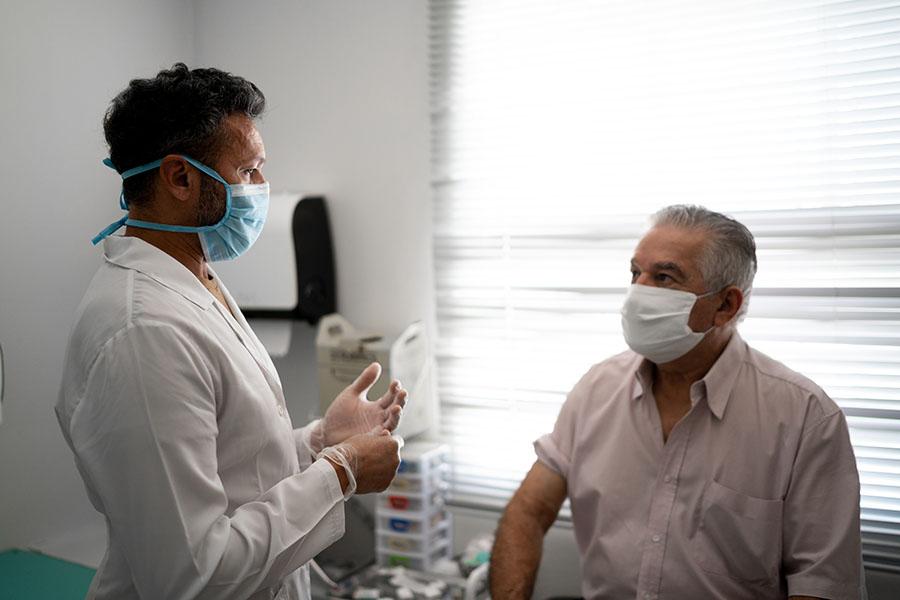Learn more about pulmonary thromboendarterectomy (PTE) surgery and what to expect.
PTE Surgery Frequently Asked Questions
People who are strong candidates for PTE surgery will have CTEPH with:
- clots that are surgically accessible in large and medium sized pulmonary arteries
- significant symptoms of shortness of breath as a result of this, often associated with significant pulmonary hypertension and right heart failure
- no other medical conditions that increase surgical risk or limit chances of success
Before surgery, the CTEPH team will perform tests to make sure you are a good candidate for PTE. These tests typically include ventilation perfusion (VQ) scan and a CT angiography scan of the chest, prior to a pulmonary angiogram. In these tests, the doctors are evaluating for old blood clots in the lungs that are surgically accessible for PTE surgery.
The most important thing to look for when choosing a doctor or hospital that performs PTE surgery is the experience they have with CTEPH and PTE. You also want to look for a program that has low surgical mortality rates (below 5%) and high patient volume (performs at least 30 PTE surgeries a year).
Temple’s CTEPH team has performed 300 PTE procedures and maintains a 3% mortality rate. Temple has the highest volume PTE program on the East Coast and is one of only 5 centers in the nation specializing in CTEPH care.
Temple accepts nearly all types of insurance, including those who are “out of network.” We do this because PTE programs are not common in the U.S. and Temple can easily obtain out-of-network authorization for its patients.
The goal of PTE surgery is simple: remove the blood clots that are causing breathing problems, restore circulation to the lungs, reverse heart failure, and improve quality of life.
An expected effect after PTE is a small amount of fluid in the lungs after surgery (pulmonary edema); this may require diuretics and ventilator support during recovery. Some patients will continue to have some degree of pulmonary hypertension after PTE. These patients may need to take medications to dilate the smaller blood vessels in their lungs.
PTE routinely involves being on the heart-lung machine with brief periods of circulatory arrest. The surgery may involve a much smaller chance of a more significant surgical risk, including bleeding, complications of anesthesia, infection, or arrhythmia.
Within weeks after PTE surgery, most patients will:
- Experience a major improvement in shortness of breath
- No longer need pulmonary hypertension medications
- No longer have heart failure
- Need minimal, if any, diuretic
- Function without the need for supplemental oxygen
Most patients will recover in the Intensive Care Unit for a few days after surgery and spend at least a week in the hospital. You may experience some initial pain from the incision, but this is helped with pain medication. Full recovery at home will take several weeks. Our team will continue to care for you closely even after you have been discharged from the hospital with follow-up visits in our program. We will also work together with your primary or local physician to ensure a smooth transition for your care.
You will likely notice improvements in breathing within the first 2 weeks after surgery. Improvements will continue over the next few months following surgery. You will stay on a blood thinner for the rest of your life.
In cases where PTE surgery has been deemed by an expert center not to be an option, or if there is some residual pulmonary hypertension after surgery, Temple’s CTEPH team can offer medication or balloon pulmonary angioplasty (BPA) to help manage the symptoms of your pulmonary hypertension. The integration of PTE surgery, BPA, and medical management within our highly experienced CTEPH program provide a unique combination of all available therapies to be individualized for each patient that we meet.
Ready for an Appointment?
Find a doctor near you, request an appointment, or call 800-TEMPLE-MED (800-836-7536) today.


